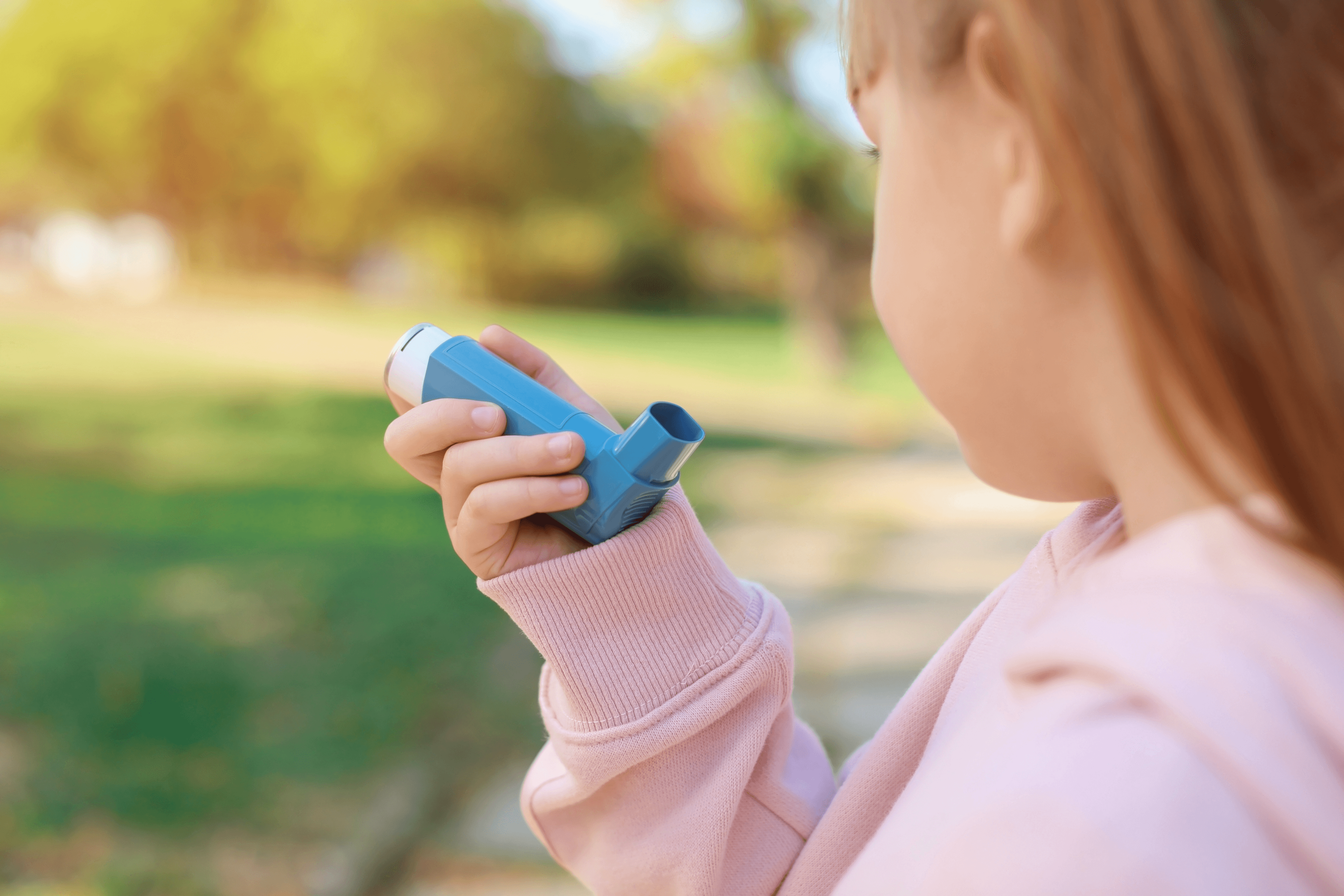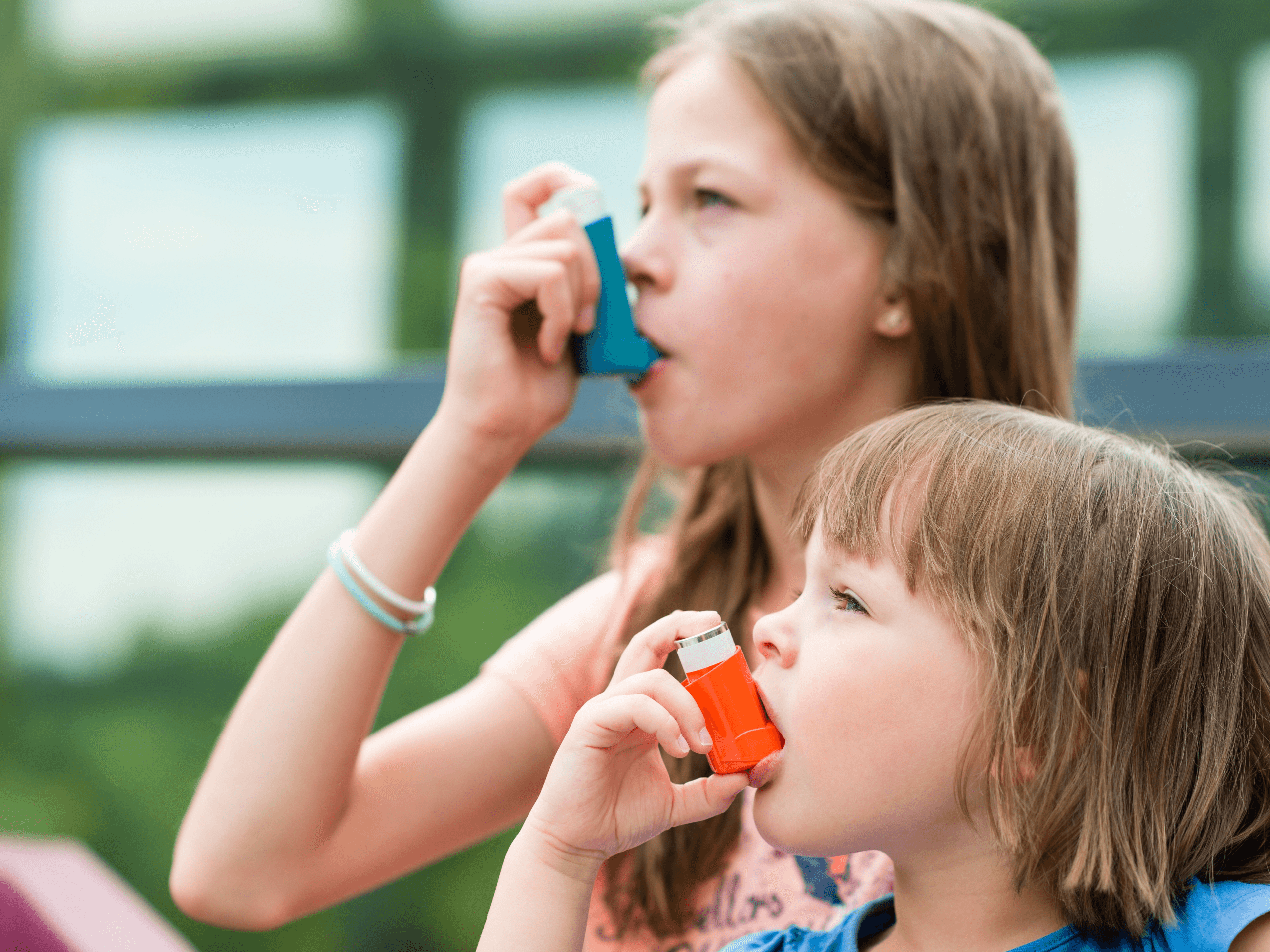
Health Insights
Recognizing and Managing Asthma in Children: A Parent’s Guide with Dr. Aulakh
June 10, 2025 [Gillette, WY] – Asthma affects millions of children and their families every year, and for many, it begins before the age of five. But understanding what asthma looks like in kids, and how to manage it effectively, can make all the difference. Dr. Jai Aulakh, allergy and immunology specialist at Hoskinson Health & Wellness Clinic, shares key insights to help parents navigate asthma from diagnosis to daily care.
When Is a Cough Just a Cough?
Many parents wonder if a persistent cough or wheezing is just a lingering cold or something more.
“About 50% of kids with asthma will wheeze, but the majority may only have a persistent cough,” says Dr. Aulakh. “Not every wheeze is asthma, and not every asthma case wheezes.”
Frequent nighttime coughing, coughing after laughing or playing, or a persistent dry cough that doesn’t go away after a viral illness could be signs of asthma. An evaluation by a qualified provider is essential for accurate diagnosis.
Can Asthma Develop Later?
Yes. While many children are diagnosed at an early age, asthma can develop at any stage of life. In fact, respiratory infections like Rhinovirus or RSV can trigger long-term symptoms that resemble asthma.
A child might seem fine, then develop a chronic cough following a cold or bronchitis. This is often when your allergist begins to investigate for asthma.
Is Asthma Always There? Or Can It Come and Go?
Asthma can be either intermittent or persistent.
Some children have symptoms only during cold and flu season or after exposure to certain allergens. Others experience symptoms daily.
Regardless of how often it flares up, asthma is an ongoing condition, meaning the airways are chronically inflamed, even if symptoms aren’t always visible.
Common Misconceptions About Childhood Asthma
One of the most common misconceptions Dr. Aulakh hears from parents? That a chronic cough must be a lingering infection that needs antibiotics.
“Actually, asthma is more about airway inflammation than infection,” he explains. “Inhaled corticosteroids are the standard treatment, not antibiotics.”
Another concern: parents hesitant to use inhaled steroids. Dr. Aulakh emphasizes that inhaled glucocorticoids are safe and effective.
Oral steroids should be avoided for long-term use due to potential side effects, such as growth suppression.

What Triggers Asthma?
While viral illnesses are the number one trigger in children, Dr. Aulakh says environmental factors often come as a surprise. These include:
- Indoor pets
- Mold
- Secondhand smoke
- Dust mites
- Poor indoor air quality
Regular exposure to these triggers can increase the frequency and severity of asthma attacks.
Asthma in High-Pollution Areas: What Parents Can Do
- Monitor air quality reports daily.
- Keep your child indoors on high-pollution days.
- Use prescribed controller inhalers consistently, not just during flare-ups.
At Home: Creating an Asthma-Safe Space
- Keep pets out of your child’s bedroom.
- Invest in a high-quality air purifier.
- Absolutely no smoking indoors.
Asthma and Everyday Life: Sports, School, and Emergency Prep
Asthma shouldn’t stop kids from doing what they love. With the right management, most children with asthma can safely play sports, and enjoy a full, active life.
Here’s how to stay ahead of flare-ups:
- Always carry an Albuterol rescue inhaler.
- Have a signed asthma care plan at school or daycare with clear instructions on when and how to administer medication.
- Ensure coaches and caregivers are aware of your child’s asthma and what to do in an emergency.
If the inhaler isn’t working and symptoms worsen, seek emergency care immediately.
Long-Term Outlook: Can Kids Outgrow Asthma?
Asthma is a chronic condition, but symptoms can go into remission. Many children may experience years without symptoms, only to have them return after a viral illness, exposure to allergens, or other environmental triggers.
“Uncontrolled asthma can lead to long-term lung changes, including airway remodeling and even COPD,” Dr. Aulakh warns.
Thanks to advancements in allergy testing, and targeted treatments, children with asthma today have better outcomes than ever before.
“While there is no cure for asthma, once it is properly diagnosed and a treatment plan is in place, patients are able to manage their conditions, and improve their quality of life.”

What Every Parent Should Remember
- Asthma is manageable.
- With education, support, and the right care plan, your child can live a happy, healthy life.
- Never hesitate to ask questions or seek a specialist’s guidance.
“An Allergist/Immunologist is the best qualified physician in diagnosing and treating asthma. With the help of your allergist, you can take control of your condition and participate in normal activities,” says Dr Aulakh.
Need support managing yours or your child’s asthma?
Schedule an appointment with Dr. Jai Aulakh and our Allergy & Immunology team today.
